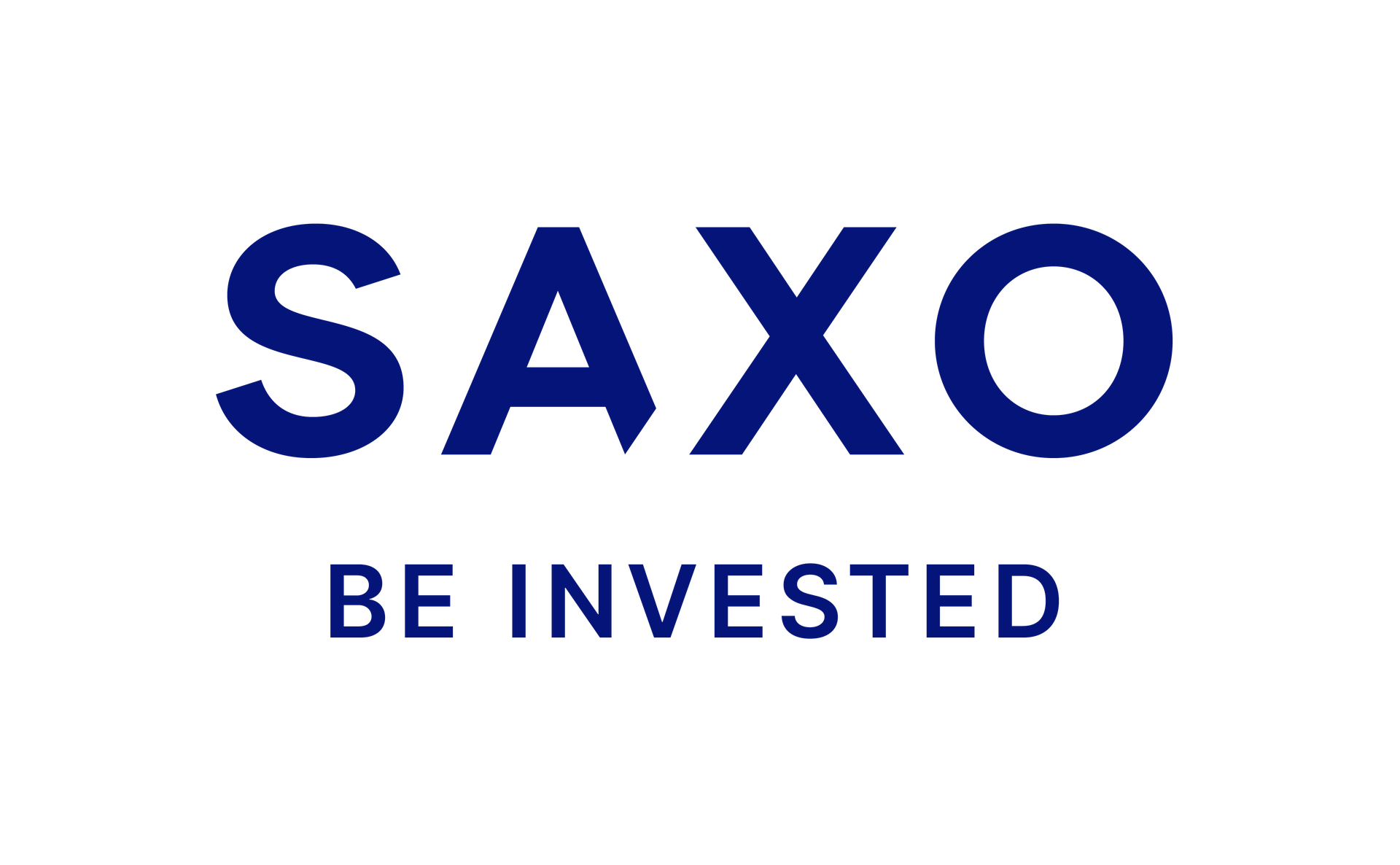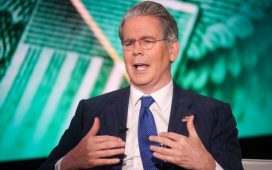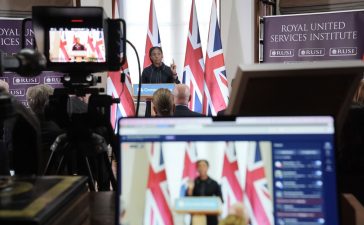- BP made a third-quarter underlying replacement cost profit of £1.75bn
- Prices of both oil and gas have come down since the summer
BP’s profits fell to their lowest level in almost four years during the third quarter, reflecting weaker oil prices and refining margins.
The energy giant made an underlying replacement cost profit – its preferred measure of earnings – of $2.3billion (£1.75billion) for the three months ending September.
While this figure surpassed analyst forecasts of $2.1billion (£2.15billion), it was about $500million less than BP earned during the previous three months and $1billion down on the equivalent period last year.

Performance: BP’s profits fell to their lowest level in almost four years during the third quarter due to subdued oil prices and refining margins
It was also the weakest result since the fourth quarter of 2020, when plummeting demand for oil caused by tough Covid-related restrictions limited net profits to $115million.
BP said trading in recent months has been hit by ‘lower refining margins and a weak oil trading contributions’.
Average Brent crude prices dipped by over 7 per cent year-on-year to $80.34 per barrel amid rising output from OPEC+ countries and a slowing Chinese economy.
Over the same period, natural gas marker prices declined by more than 15 per cent to $2.15 per million British thermal units, thanks partly to increasing production and warm weather.
Prices of both oil and gas have come down since the summer despite conflict in the Middle East heightening concerns of disruption to global energy supplies.
Under chief executive Murray Auchincloss, BP is scaling back its renewables strategy in favour of fossil fuels following significant investor pressure.
The FTSE 100 company has suspended all new offshore wind projects and signed a memorandum of understanding with the Iraqi Government to develop and explore the Kirkuk oilfield.
Reuters reported earlier this month that BP was considering abandoning plans to cut oil and gas output by 2030, which was instituted under previous CEO Bernard Looney.
Auchincloss said: ‘In oil and gas, we see the potential to grow through the decade with a focus on value over volume.
‘We also have a deep belief in the opportunity afforded by the energy transition – we have established a number of leading positions and will continue high-grading our investments to ensure they compete with the rest of our business.’
BP kept its dividend unchanged at 8 cents per share and announced another $1.75billion share buyback programme.
However, the firm’s operating cash flow plunged by $2billion to $6.8billion, while its net debt climbed by about the same amount to $24.3billion.
Danni Hewson, head of financial analysis at AJ Bell, said: ‘While better than nothing, buybacks on their own clearly won’t be enough to win the market over, particularly against a backdrop of lower profit and cash flow and mounting debt.
‘Ultimately, BP has lots of work to do to convince investors it has a clear strategy for the future.’
BP shares were 2.4 per cent down at 389.4p on late Tuesday morning, meaning they have lost around a quarter of their value in the past year.
DIY INVESTING PLATFORMS

AJ Bell

AJ Bell
Easy investing and ready-made portfolios

Hargreaves Lansdown

Hargreaves Lansdown
Free fund dealing and investment ideas

interactive investor

interactive investor
Flat-fee investing from £4.99 per month

Saxo

Saxo
Get £200 back in trading fees

Trading 212

Trading 212
Free dealing and no account fee
Affiliate links: If you take out a product This is Money may earn a commission. These deals are chosen by our editorial team, as we think they are worth highlighting. This does not affect our editorial independence.









